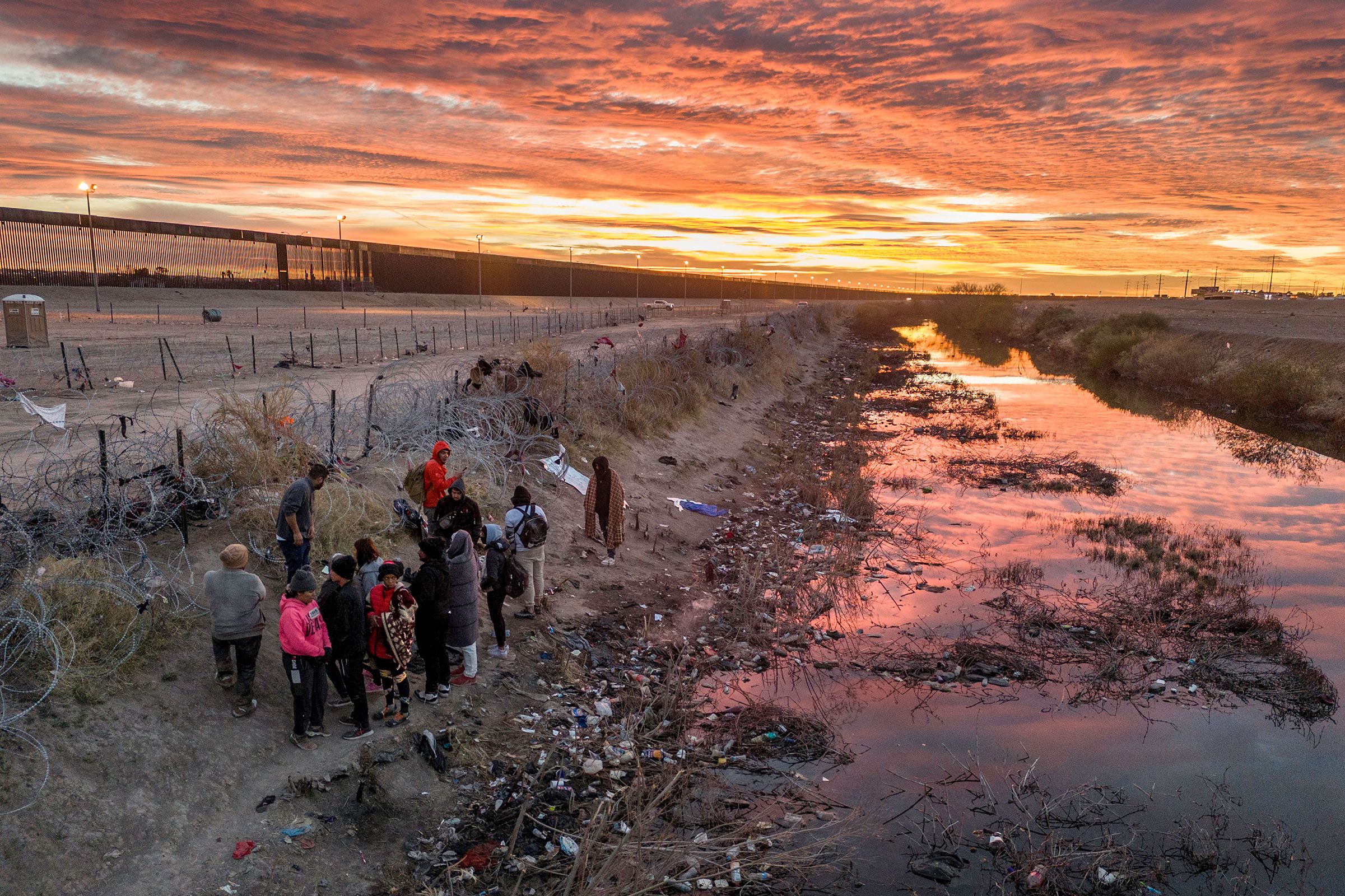The Biden administration is reportedly contemplating an executive action that could limit the ability of migrants to seek asylum at the US-Mexico border if they crossed illegally. This move echoes controversial policies from the Trump era and is likely to provoke strong opposition from immigration advocates and progressives.
President Joe Biden’s handling of the US-Mexico border has been a contentious issue for years, as migration across the Western hemisphere has reached record levels, leading to thousands of migrants arriving at the border. The proposed action appears to extend some of the harshest measures in the border compromise legislation previously rejected by Republicans. This move is seen as another attempt by the White House to demonstrate its commitment to border security ahead of the upcoming elections.
However, no final decision has been made on the proposed action, which involves using an authority known as 212f between ports of entry to curb unlawful border crossings. An administration official noted that while the administration often evaluates potential actions, they do not always proceed with them. The specifics of how the proposed proclamation would be executed and how it would differ from measures enacted during the Trump administration remain unclear.
The Justice Department’s Office of Legal Counsel is currently reviewing the proposed executive order to determine its legal viability. However, some Justice officials have expressed skepticism that the proposed changes, aimed at addressing previous court rulings against the Trump-era order, could withstand the inevitable legal challenges.
White House spokesperson Angelo Fernández Hernández did not comment on the proposed actions but emphasized the administration’s commitment to border security and immigration reform. He urged Congress to provide the necessary policy reforms and additional funding to secure the border and fix the broken immigration system.
Earlier this month, Biden suggested he would shut down the US-Mexico border if the proposed border legislation had been signed into law, effectively endorsing one of the toughest measures included in the package. Trump attempted to close the US southern border to asylum seekers crossing the border unlawfully while in office, but was blocked by the courts.
Administration officials, facing dwindling border security funds, have also discussed whether declaring a national emergency could shore up funds. The White House supplemental request includes $14 billion in border security but remains stalled in Congress.
Last year, the Biden administration released a regulation that largely barred migrants who traveled through other countries on their way to the US southern border from applying for asylum in the United States. This marked a departure from decades-long protocol. However, administration officials rejected comparisons to the Trump administration, emphasizing efforts to expand access to legal pathways to the US.
According to federal data, migrant apprehensions have dropped by 50% in January, compared to December. Homeland Security officials have attributed the decline to ongoing high-level talks between the US and Mexico, which has doubled down on enforcement, but have cautioned that encounters historically drop in January before ticking up again.
Acting US Customs and Border Protection Commissioner Troy Miller acknowledged the ongoing challenges at the border, stating: “We continue to experience serious challenges along our border which surpass the capacity of the immigration system.”
In January, the US Border Patrol reported 124,220 encounters along the US-Mexico border. Notably, there was a significant drop in Venezuelans — nearly 11,600 compared to 57,851 in December. Both the US and Mexico have restarted deportation flights to Venezuela.
This story has been updated with additional information. CNN’s Evan Perez contributed to this report.

